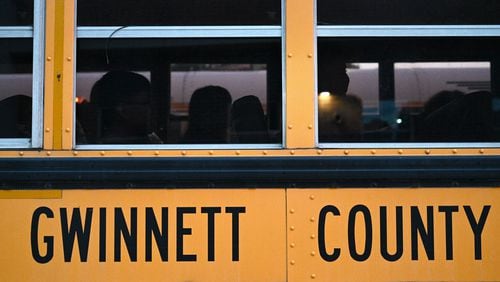Gwinnett County Public Schools will take a multimillion dollar revenue hit due to voter-approved tax relief for homeowners in the county, but district leaders insist it’s a blow they can absorb.
The district expects the newly expanded homestead exemption to reduce revenue by up to $13 million once it goes into effect in January 2025.
Voters in the May primary supported the expansion, voting yes on two referendum questions. The existing exemption will double from $4,000 to $8,000, and public service employees, including school district staff, can receive an additional $2,000 exemption.
The district’s top financial officer said even with those additional savings for property owners and a slightly lower millage rate, the district will see higher revenues because of higher property appraisals as home prices continue to rise in Gwinnett and throughout metro Atlanta.
The school board adopted a millage rate for the upcoming fiscal year after a public hearing Wednesday. The operations rate will be lowered from 19.2 mills to 19.1 mills. The total millage rate, which includes debt service, will be 20.55 mills.
In recent years, the district has seen major revenue increases from real estate taxes even though the school board has lowered the millage rate. The rate in 2019 for district operations was 19.7 mills. The amount levied from taxes in 2019 was $661 million. In 2024, it’s estimated to $1.1 billion.
The district was not involved in the homestead legislation or lead up to the referendum. State Rep. Matt Reeves, R-Duluth, supported the expansion and told reporters before the vote, “Whatever dollar figure (reduction in revenue), we make up for it many times over through the dedication that homeowners bring to the community.”
In a written statement after voters approved the expansion, the district stated it “understands how property tax exemptions benefit taxpayers, including teachers and other public servants across the county.”
Chief Financial Officer Masana Maillard said Wednesday revenue changes from the homestead exemption are not expected to hinder any new initiatives in the budget the board recently approved.
Board members acknowledged the increased taxes that property owners have paid in recent years. Board Chair Steve Knudsen said, “My taxes continue to go up, but I am willing to invest that in our community,” and commended residents for investing in students’ education.
The budget passed in June totals $3.2 billion and includes a $4,000 raise for teachers, a 4.25% pay increase for other employees and a step increase for eligible staff based on years of experience. Other initiatives in the budget include funding for high school graduation coaches, money to pay for students to take the SAT college-entrance exam and positions to support multilingual students.
About the Author






